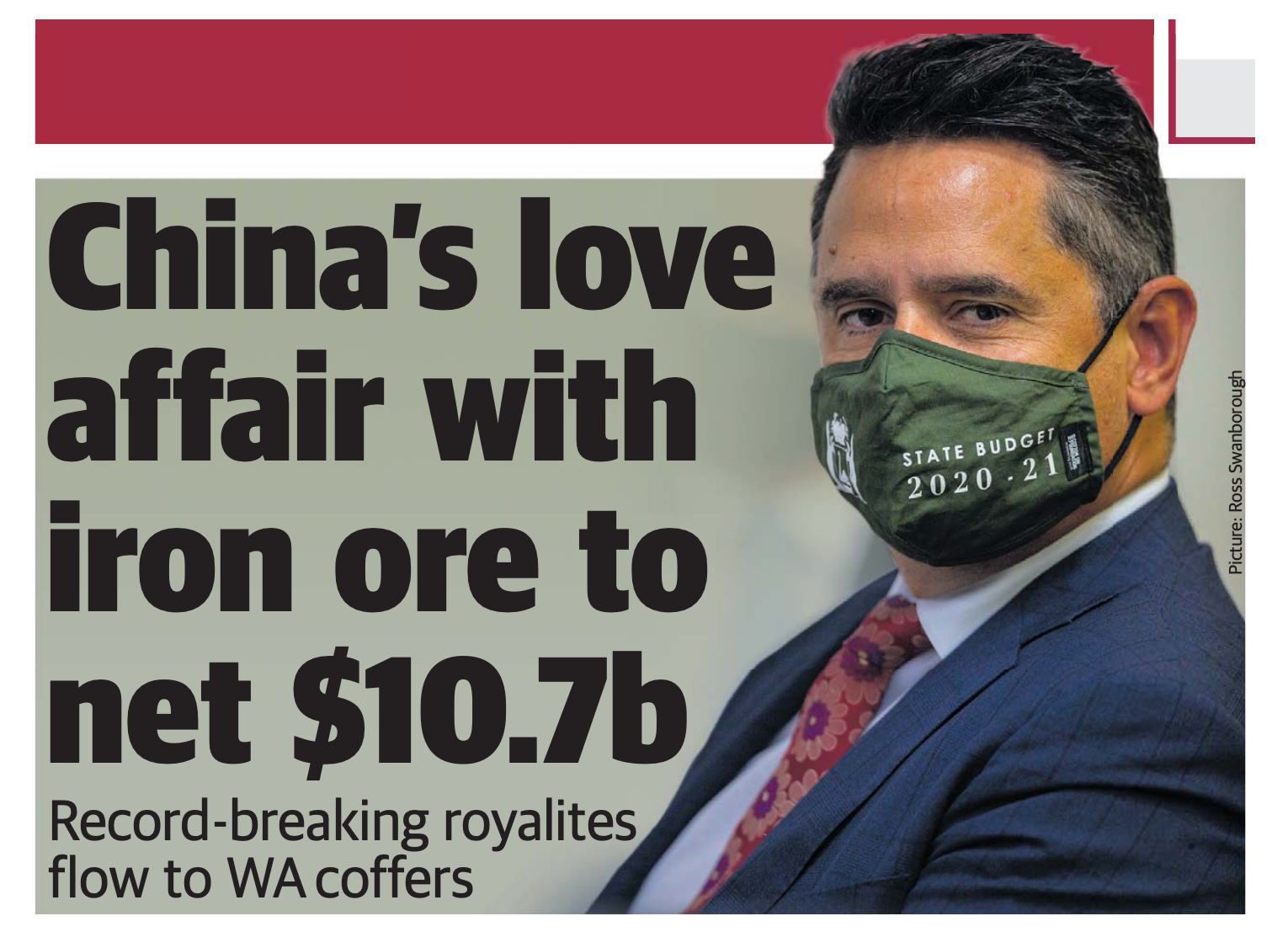Article by Peter Law courtesy of the West Australian

China’s insatiable demand for WA’s iron ore is set to deliver a record-breaking $10.7 billion in mining royalties to the State Government this financial year.
Treasury’s pre-election financial projections show forecasted iron ore royalty income for 2020-2021 has risen $2.1b since Treasurer Ben Wyatt, pictured, delivered December’s mid-year review.
The unprecedented royalties windfall has the State on track to deliver a $3.1b operating surplus, also helped by a $269 million increase in stamp duty revenue from Perth’s hot property market.
Iron ore royalty payments were now estimated to account for 27 per cent of total general government revenue, compared with an average of 18 per cent over the preceding decade.
Treasury officials said two months ago few – if any forecasters predicted this summer’s iron ore price spike, with most institutional forecasts expecting a decline.
WA has now revised its iron ore price assumption for 20202021 from $US103.7 to $US134.3 a tonne. Treasury assumes the price will revert to its long-run average of $US64 by August.
However, while the price was expected to fall as Chinese demand eases and Brazilian supply recovers, Treasury had taken a “conservative approach” and “did not necessarily” expect the price would plummet to $US64 in six months.
WA’s unemployment rate is tipped to average 6.5 per cent this financial year, compared with the 7 per cent previously forecast, before falling to 6 per cent in 20212022 and then 5.5 per cent in 2022-2023.
State final demand, a measure of the domestic economy, was projected to grow 2.25 per cent, while the recent five day lockdown was expected to only have a “modest” impact.
Any significant extension of the lockdown or a second wave of COVID-19 could have “substantial impacts” on economic activity, depending on the extent and length of restrictions.
The unwinding of JobKeeper next month was another risk but indicators suggest the pullback of stimulus measures since September “has not had a material impact on the overall economy”. Despite the pandemic defying surplus, Premier Mark McGowan did not commit to any further financial support for businesses forced to close last week, beyond the $43m worth of $500 electricity bill credits.
The Premier said “every single dollar of the surplus was currently invested in infrastructure”, which he said was “actually keeping people employed (and) building things across the State”.
WA Liberal leader Zak Kirkup renewed his call for small businesses impacted by the lockdown to immediately receive grants of up to $10,000.
Mr Wyatt – who retires at the March 13 election said as a result of this year’s royalties boost, $1.5 billion worth of dividends from government trading enterprises would be “deferred” to 2021-2022.